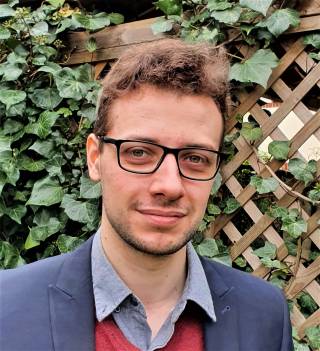The term “identity” is remarkably broad. In part, it is an etic abstraction of academic study, encompassing various theoretical approaches to the study of social-group cohesion, creation, and dissolution. Yet it is also a very tangible occurrence which we experience as part and parcel of our social existence, with consequences that are realised in real-time: politically, religiously, economically, and socially. As a result, the study of historical identities is fraught with methodological concerns. What constitutes a group “identity”? How were they formed, and – in the case of multiple group identities – how were conflicts managed? Down which lines were distinctions drawn? And how are such identities represented – if at all – in our surviving source material?
These questions are a core part of the theoretical framework which James seeks to grapple with during his doctorate. At its broadest, his research seeks to revise current conceptualisations of secular and religious power structures in Lombard Italy, c. 568-774. In doing so, James argues that early-medieval identities were not shallow façades formed in vacuums, created and dropped on a whim; but neither are they primordial, unchanging and immutable. Instead, he contends that group identities were innately and contextually negotiated, a constantly adapting product of complex social interactions, evoking shared bonds – historic, topographic, geographic, or religious – and emotionally expressive ideas.
With this framework, James will appraise how the undercurrents of social identities and beliefs in communities across early-medieval Italy interplayed to frame the competition between clerical and lay leaders for local power and authority. Structuring the discussion around local communities, James is predominantly focusing on the surviving and recorded epigraphic material from the sixth to ninth centuries, in juxtaposition with surviving textual and archaeological evidence. Understood as entities physically present within the word to which they attest, his analysis innately looks to the textuality, palaeography, imagery, and physicality of the inscriptions to uncover those underlying social concepts and attitudes which imbued the messages they deliberately conveyed to readers, contemporary and posterior.
PhD
Supervisors: Antonio Sennis (primary) | Patrick Lantschner (secondary)
Working Title: Carvings, Codices, and Material Cultures: Belief, Communal Identities, and the competition for Local Power in early-medieval Italy, c. 535-774
Expected Completion Date: 2024
Awards
Dean’s List | Faculty of Social and Historical Sciences, UCL | 2020
Seminars & Academic Network
Co-convenor | Interdisciplinary Medieval and Renaissance Studies Seminar (IMARS) | UCL
Peer-Review Editor for Roman Studies | New Classicists
Conferences
‘From the Palace to the Basilica: Burial spaces and the competition between ecclesiastical and royal authority in early-medieval Pavia’, Centre for Medieval and Renaissance Culture (CMRC) Study Day, University of Southampton, May 2021.
 Close
Close


